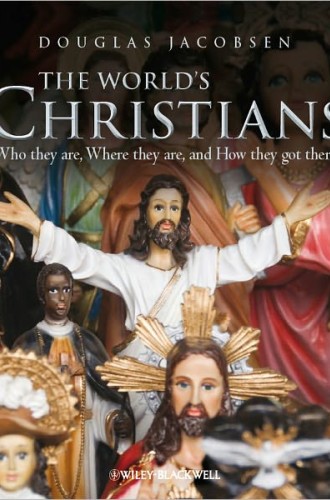The World’s Christians, by Douglas Jacobsen
Shortly after the end of World War II, the Maryknoll order’s John J. Considine, an ecumenically minded missiologist who had visited virtually every major center of Christian missionary activity in the world, was one of the first to use the phrase “world Christianity,” when he said, “Christianity is not true Christianity unless it embraces all mankind—unless it is world Christianity.” In his little book called World Christianity, Considine used the phrase to describe both the theological essence of Christianity and what was coming into being as a social reality in the late 1940s.
Nearly 70 years later, Douglas Jacobsen has written a comprehensive survey of what that movement has become. A professor of church history at Messiah College in Grantham, Pennsylvania, Jacobsen is the author of a well-received study of the theologies of early Pentecostalism (Thinking in the Spirit) and, with his wife Rhonda Jacobsen, editor of the highly regarded The American University in a Postsecular Age. He is one of the most reliable and insightful scholars of world Christianity writing today.
The World’s Christians is divided into three parts that correspond to the subtitle of his book: one part each to tell who the world’s Christians are, where they are and how they got there. Jacobsen gives an overview of the history and basic characteristics of the four principal Christian traditions: Orthodox, Catholic, Protestant and Pentecostal/Charismatic.





